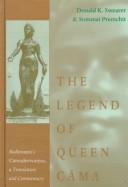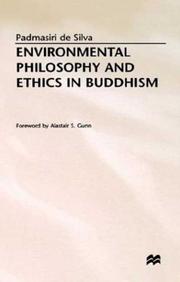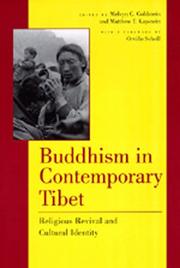| Listing 1 - 10 of 12 | << page >> |
Sort by
|

ISBN: 0520920651 0585342792 9780520920651 9780585342795 0520204603 0520213017 9780520204607 9780520213012 Year: 1998 Publisher: Berkeley (Calif.) : University of California press,
Abstract | Keywords | Export | Availability | Bookmark
 Loading...
Loading...Choose an application
- Reference Manager
- EndNote
- RefWorks (Direct export to RefWorks)
Buddhism --- NON-CLASSIFIABLE. --- Buddha and Buddhism --- Lamaism --- Ris-med (Lamaism) --- Religions --- United States --- United States.
Book
ISBN: 8970090444 Year: 1998 Publisher: 서울 民族社
Abstract | Keywords | Export | Availability | Bookmark
 Loading...
Loading...Choose an application
- Reference Manager
- EndNote
- RefWorks (Direct export to RefWorks)
Buddhism --- History. --- Doctrines. --- K9070 --- K9071 --- Buddha and Buddhism --- Lamaism --- Ris-med (Lamaism) --- Religions --- Doctrines --- History --- Korea: Religion -- Buddhism -- general and history --- Korea: Religion -- Buddhism -- theology, scriptures, philosophy
Book
ISBN: 1283097737 9786613097736 0191587893 0585111588 9780191587894 9780585111582 9780192892232 0192892231 0191606715 Year: 1998 Publisher: Oxford New York
Abstract | Keywords | Export | Availability | Bookmark
 Loading...
Loading...Choose an application
- Reference Manager
- EndNote
- RefWorks (Direct export to RefWorks)
Buddhism is a vast and complex religious and philosophical tradition with a history that stretches over 2,500 years, and which is now followed by around 115 million people. In this introduction to the foundations of Buddhism, Rupert Gethin concentrates on the ideas and practices which constitute the common heritage of the different traditions of Buddhism (Thervada, Tibetan, and Eastern) which exist in the world today.
Buddhism. --- Religions. --- Comparative religion --- Denominations, Religious --- Religion, Comparative --- Religions, Comparative --- Religious denominations --- World religions --- Civilization --- Gods --- Religion --- Buddha and Buddhism --- Lamaism --- Ris-med (Lamaism) --- Religions

ISBN: 0521570549 0521578426 0511520654 9780521570541 9780511520655 9780521578424 Year: 1998 Volume: 12 Publisher: Cambridge Cambridge University Press
Abstract | Keywords | Export | Availability | Bookmark
 Loading...
Loading...Choose an application
- Reference Manager
- EndNote
- RefWorks (Direct export to RefWorks)
This book presents an answer to the question: what is nirvana? Part I distinguishes between systematic and narrative thought in the Pali texts of Theravada Buddhism in South and Southeast Asia, arguing that nirvana produces closure in both, and setting nirvana in the wider category of Buddhist Felicities. Part II explores other Buddhist utopias (both eu-topias, 'good places', and ou-topias, 'no-places'), and relates Buddhist utopianism to studies of European and American utopian writing. The book ends with a close reading of the Vessantara Jataka, which highlights the conflict between the ascetic quest for closure and ultimate felicity, and the ongoing demands of ordinary life and society. Steven Collins discusses these issues in relation to textuality, world history and ideology in premodern civilizations, aiming to contribute to an alternate vision of Buddhist history, which can hold both the inside and the outside of texts together.
Nirvana --- Utopias --- -Buddhism --- -Buddha and Buddhism --- Lamaism --- Ris-med (Lamaism) --- Religions --- Ideal states --- States, Ideal --- Utopian literature --- Political science --- Socialism --- Voyages, Imaginary --- Dystopias --- Eightfold Path --- Eschatology --- Religious aspects --- Doctrines --- Nirvana. --- Buddhism --- Doctrines. --- Buddhism. --- Utopies --- Bouddhisme --- Aspect religieux --- Buddhist doctrines --- Buddhist theology --- Lamaist doctrines --- Religious aspects&delete& --- Arts and Humanities --- Religion --- Utopias - Religious aspects - Buddhism --- Buddhism - Doctrines
Book
ISBN: 0585066639 9780585066639 0791495868 9780791495865 Year: 1998 Publisher: Albany, NY State University of New York Press
Abstract | Keywords | Export | Availability | Bookmark
 Loading...
Loading...Choose an application
- Reference Manager
- EndNote
- RefWorks (Direct export to RefWorks)
Buddhist fundamentalism --- Ethnicity --- Buddhism --- Ethnic identity --- Group identity --- Cultural fusion --- Multiculturalism --- Cultural pluralism --- Buddha and Buddhism --- Lamaism --- Ris-med (Lamaism) --- Religions --- Fundamentalism, Buddhist --- Religious fundamentalism --- Religious aspects. --- Relations. --- Social aspects --- Sri Lanka --- Shri Lanka --- Lanka --- Serendib --- Taprobane --- Cellao --- Zeilan --- Serendip --- Sī Langkā --- Sri Lanka Prajathanthrika Samajavadi Janarajaya --- Democratic Socialist Republic of Sri Lanka --- Śrīlaṅkā --- Ilaṅkai --- Ceylon --- Religion.

ISBN: 0585069433 9780585069432 9780791437766 0791437760 0791437760 1438421672 Year: 1998 Publisher: Albany, N.Y. State University of New York Press
Abstract | Keywords | Export | Availability | Bookmark
 Loading...
Loading...Choose an application
- Reference Manager
- EndNote
- RefWorks (Direct export to RefWorks)
Cāma (Legendary character) --- Legends, Buddhist --- Buddhism --- Cāma, Queen of Hariphunchai (Legendary character) --- Cāmadevī (Legendary character) --- Čhāmathēwī (Legendary character) --- Queen Cāma (Legendary character) --- Legends --- Buddha and Buddhism --- Lamaism --- Ris-med (Lamaism) --- Religions --- History and criticism. --- Folklore. --- Buddhist legends --- Cāma (Legendary character)
Book
ISBN: 9028925430 9039107327 Year: 1998 Publisher: Kapellen Kampen Pelckmans Kok Agora
Abstract | Keywords | Export | Availability | Bookmark
 Loading...
Loading...Choose an application
- Reference Manager
- EndNote
- RefWorks (Direct export to RefWorks)
Indian religions --- Boeddha en boeddhisme --- Boeddhisme --- Bouddha et bouddhisme --- Bouddhisme --- Buddha and buddhism --- Buddhism --- Lamaism --- Lamaïsme --- Oosterse filosofie --- Philosophie orientale --- #GGSB: Boeddhisme --- #GGSB: Wereldgodsdiensten --- 294.3 --- Boeddhisme--(algemeen) --- 294.3 Boeddhisme--(algemeen) --- 294.3 Boeddhisme:--verder in te delen zoals 291.1/.8 --- Boeddhisme:--verder in te delen zoals 291.1/.8 --- Buddhist ethics --- C1 --- boeddhisme --- psychologie --- zingeving --- Buddhist doctrines --- Buddhist theology --- Lamaist doctrines --- Religious ethics --- Buddhist psychology --- Psychology, Buddhist --- Doctrines --- Psychology --- Kerken en religie --- Wereldgodsdiensten --- Western world

ISBN: 0312213166 Year: 1998 Publisher: New York (N.Y.): St. Martin's
Abstract | Keywords | Export | Availability | Bookmark
 Loading...
Loading...Choose an application
- Reference Manager
- EndNote
- RefWorks (Direct export to RefWorks)
294.35 --- Human ecology --- -Buddhism --- -Buddhist ethics --- Environmental ethics --- Environmental quality --- Ethics --- Religious ethics --- Buddha and Buddhism --- Lamaism --- Ris-med (Lamaism) --- Religions --- Ecology --- Environment, Human --- Human beings --- Human environment --- Ecological engineering --- Human geography --- Nature --- Boeddhisme: Dhamma--(morele wet) --- Religious aspects --- Social aspects --- Moral and ethical aspects --- Effect of environment on --- Effect of human beings on --- Buddhism --- Buddhist ethics. --- Environmental ethics. --- Social aspects. --- Buddhism. --- 294.35 Boeddhisme: Dhamma--(morele wet) --- Buddhist ethics --- Religious aspects&delete&

ISBN: 0520211308 0520211316 Year: 1998 Publisher: Berkeley : University of California Press,
Abstract | Keywords | Export | Availability | Bookmark
 Loading...
Loading...Choose an application
- Reference Manager
- EndNote
- RefWorks (Direct export to RefWorks)
Buddhism --- Bouddhisme --- History --- Histoire --- Tibet Autonomous Region (China) --- Région autonome du Tibet (Chine) --- Religion --- S24/0900 --- Tibet--Religion and philosophy --- Région autonome du Tibet (Chine) --- Buddha and Buddhism --- Lamaism --- Ris-med (Lamaism) --- Religions --- Tibetan Autonomous Region (China) --- Hsi-tsang tzu chih chʻü (China) --- Xizang Zizhiqu (China) --- 西藏自治区 (China) --- Hsi-tsang tzu chih chʻü jen min cheng fu (China) --- Xizang Zizhiqu ren min zheng fu (China) --- TAR --- Xizang Autonomous Region (China) --- Bod Raṅ-skyoṅ-ljoṅs (China) --- Bod (China) --- Sitsang (China) --- Tibet (China) --- Thibet (China) --- Tibet-Chamdo (China) --- Tübüt (China) --- Xizang (China) --- Tibet --- TAR (China) --- Тибет (China) --- Tu̇vd (China) --- Tȯvȯd (China) --- 西藏 (China)

ISBN: 0585054908 0520920058 9780520920057 9780585054902 9780520211315 0520211316 0520211308 0520211316 9780520211308 Year: 1998 Publisher: Berkeley University of California Press
Abstract | Keywords | Export | Availability | Bookmark
 Loading...
Loading...Choose an application
- Reference Manager
- EndNote
- RefWorks (Direct export to RefWorks)
Following the upheavals of the Cultural Revolution, the People's Republic of China gradually permitted the renewal of religious activity. Tibetans, whose traditional religious and cultural institutions had been decimated during the preceding two decades, took advantage of the decisions of 1978 to begin a Buddhist renewal that is one of the most extensive and dramatic examples of religious revitalization in contemporary China. The nature of that revival is the focus of this book. Four leading specialists in Tibetan anthropology and religion conducted case studies in the Tibet autonomous region and among the Tibetans of Sichuan and Qinghai provinces. There they observed the revival of the Buddhist heritage in monastic communities and among laypersons at popular pilgrimages and festivals. Demonstrating how that revival must contend with tensions between the Chinese state and aspirations for greater Tibetan autonomy, the authors discuss ways that Tibetan Buddhists are restructuring their religion through a complex process of social, political, and economic adaptation. Buddhism has long been the main source of Tibetans' pride in their culture and country. These essays reveal the vibrancy of that ancient religion in contemporary Tibet and also the problems that religion and Tibetan culture in general are facing in a radically altered world.
Buddhism --- Religion --- Philosophy & Religion --- Buddha and Buddhism --- Lamaism --- Ris-med (Lamaism) --- Religions --- History --- Tibet Autonomous Region (China) --- Tibetan Autonomous Region (China) --- Hsi-tsang tzu chih chʻü (China) --- Xizang Zizhiqu (China) --- 西藏自治区 (China) --- Hsi-tsang tzu chih chʻü jen min cheng fu (China) --- Xizang Zizhiqu ren min zheng fu (China) --- TAR (China) --- Xizang Autonomous Region (China) --- Bod Raṅ-skyoṅ-ljoṅs (China) --- Bod (China) --- Sitsang (China) --- Tibet (China) --- Тибет (China) --- Thibet (China) --- Tibet-Chamdo (China) --- Tübüt (China) --- Tu̇vd (China) --- Tȯvȯd (China) --- Xizang (China) --- 西藏 (China) --- Tibet
| Listing 1 - 10 of 12 | << page >> |
Sort by
|

 Search
Search Feedback
Feedback About UniCat
About UniCat  Help
Help News
News